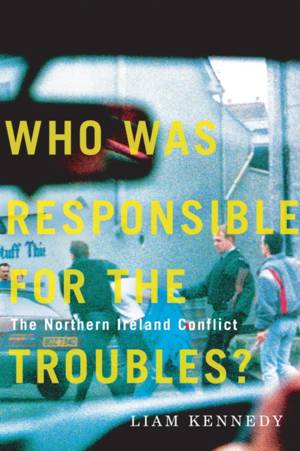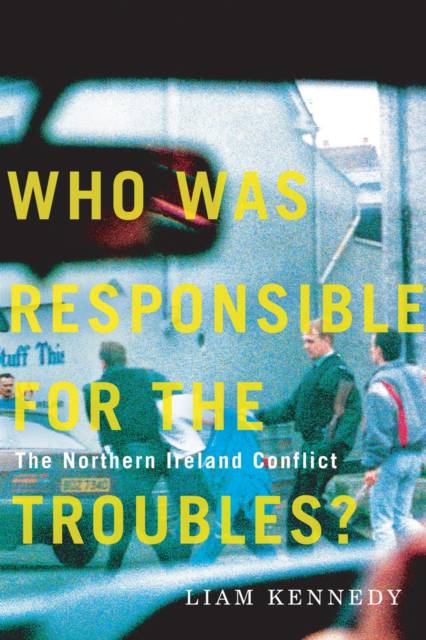
- Retrait gratuit dans votre magasin Club
- 7.000.000 titres dans notre catalogue
- Payer en toute sécurité
- Toujours un magasin près de chez vous
- Retrait gratuit dans votre magasin Club
- 7.000.000 titres dans notre catalogue
- Payer en toute sécurité
- Toujours un magasin près de chez vous
Who Was Responsible for the Troubles?
The Northern Ireland Conflict
Liam Kennedy
Livre relié | Anglais
34,45 €
+ 68 points
Description
The Troubles claimed the lives of almost four thousand people in Northern Ireland, most of them civilians; forty-five thousand were injured in bombings and shootings. Relative to population size this was the most intense conflict experienced in Western Europe since the end of the Second World War. The central question posed in this book is fundamental, yet it is one that has rarely been asked: Who was primarily responsible for the prosecution of the Troubles and their attendant toll of the dead, the injured, and the emotionally traumatized? Liam Kennedy, who lived in Belfast throughout most of the conflict, was long afraid to raise the question and its implications. After years of reflection and research on the matter he has brought together elements of history, politics, sociology, and social psychology to identify the collective actors who drove the conflict onwards for more than three decades, from the days of the civil rights movement in the late 1960s to the signing of the Good Friday Agreement in 1998. The Troubles in Northern Ireland are a world-class problem in miniature. The combustible mix of national, ethnic, and sectarian passions that went into the making of the conflict has its parallels today in other parts of the world. Who Was Responsible for the Troubles? is an original and controversial work that captures the terror and the pain but also the hope of life and the pursuit of happiness in a deeply divided society.
Spécifications
Parties prenantes
- Auteur(s) :
- Editeur:
Contenu
- Nombre de pages :
- 296
- Langue:
- Anglais
Caractéristiques
- EAN:
- 9780228003687
- Date de parution :
- 23-09-20
- Format:
- Livre relié
- Format numérique:
- Genaaid
- Dimensions :
- 152 mm x 229 mm
- Poids :
- 566 g







